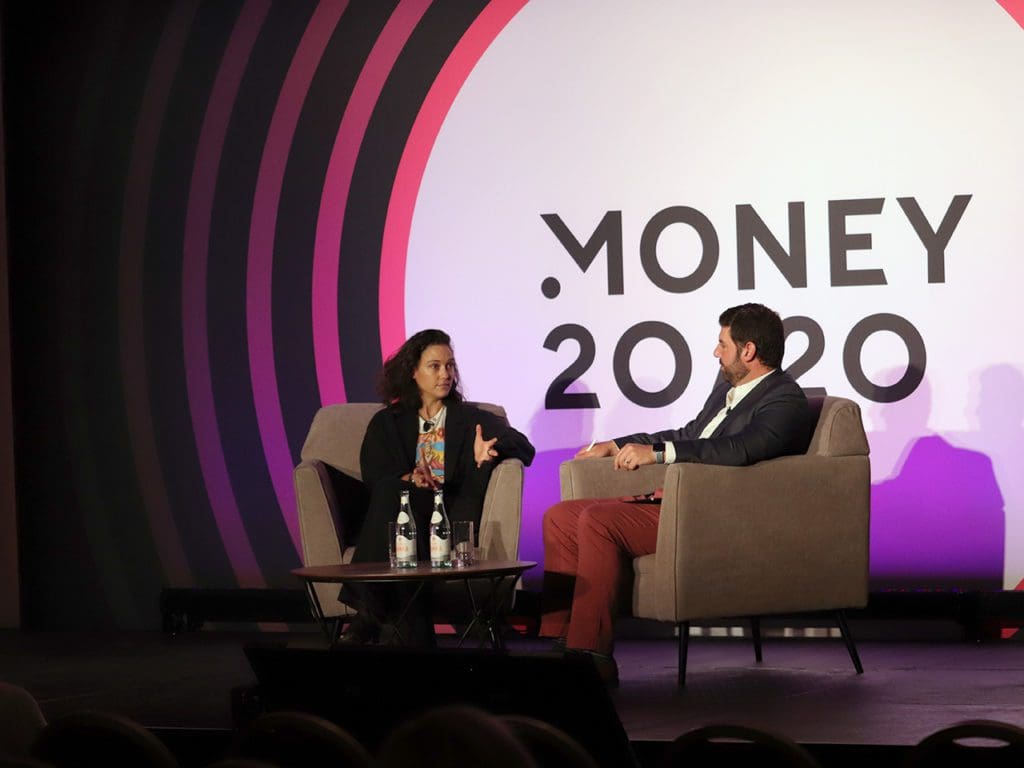LAS VEGAS, Nev. — Grassroots organizations facing fundraising difficulties have an ally at their disposal, ready to help them through the potentially complex process of establishing a DAO.
Pia Mancini is a co-founder and CEO of Open Collective. Her company was born out of the recognition that there was a lack of transparency and ease in the process of establishing DAOs.
Her time spent building a platform to help citizens decide how to vote in Argentina started her on a path to Y Combinator in 2015 and her startup not long after.
“I started a political party in Argentina called the Net Party, and the party had, at the center, a platform for citizen decision-making and voting. That’s how I started with building tech and building open source. That took me to Y Combinator in 2015. From there, I started Open Collective,” Mancini told Money 20/20 panel moderator Eric Golden on Sunday.
RELATED: The Web3 economy and DAOs: Making it work
“We started Open Collective because we felt there were a lot of barriers. Open Collective is a transparent financial platform that enables decentralized communities to fundraise and spend money in full transparency without needing a legal entity or a bank account to do so,” Mancini said.
“It is a platform that enables communities to access and connect with payment gateways, access their funds, and manage them by themselves.”
Non-profit custodians
Mancini noted that the group that started Open Collective also created a network of worldwide nonprofits that act as custodians of the funds.
The cost for a company to access this technology is zero.
“You go to Open Collective, create a collective, and apply to any of our nonprofits. We have a network of over 300 nonprofits worldwide, and you apply to them for something called Fiscal Sponsorship,” Mancini said.
Fiscal sponsorship has been around in the U.S. for many years.
“We’re just doing it on steroids, globally,” Mancini said.
“You apply to be fiscally sponsored. And now, this nonprofit receives the money for you, provides all the paperwork that your sponsor needs, gets a tax-deductible receipt, and gets the money. In full transparency, everyone’s happy. We’re not duplicating useless structures in the world.”

Maintain momentum
Mancini said when people get together and create a group, there’s a lot of excitement, which is important to maintain momentum.
“We create an open-source protocol to help marginalized groups of people. There are a lot of passionate people when a mission is involved,” Mancini said.
“Once you have your token, then you don’t have incentives to keep participating in that community. You end up with a ton of semi-dead DAOs or defaults.”
They forget that the challenges are human, Mancini noted.
“Democratic culture is upstream of democratic institutions. If you do not work on your culture, if you forget about the humans and the democratic culture in your data, then there is no consensus mechanism that will save your community.”
The emotional energy is what drives Mancini to do even more in the space.
“The connection between these communities and Web3 is the thing that I’m most excited about. It’s because those grassroots communities are marginalized by the current system,” Mancini said. “They’re not the winners. It’s fundamental to ensure that Web3 and the next technological paradigm are not built for those already winners in this system.”
The collective hosts 4,000 open-source projects worldwide, and they move $30 million from companies that want to support these open-source projects. It’s really project-directed funding.
“Our mission — making communities sustainable or enabling decentralized communities to be sustainable — is true today, and it’s going to be true in 50 years,” Mancini said.


